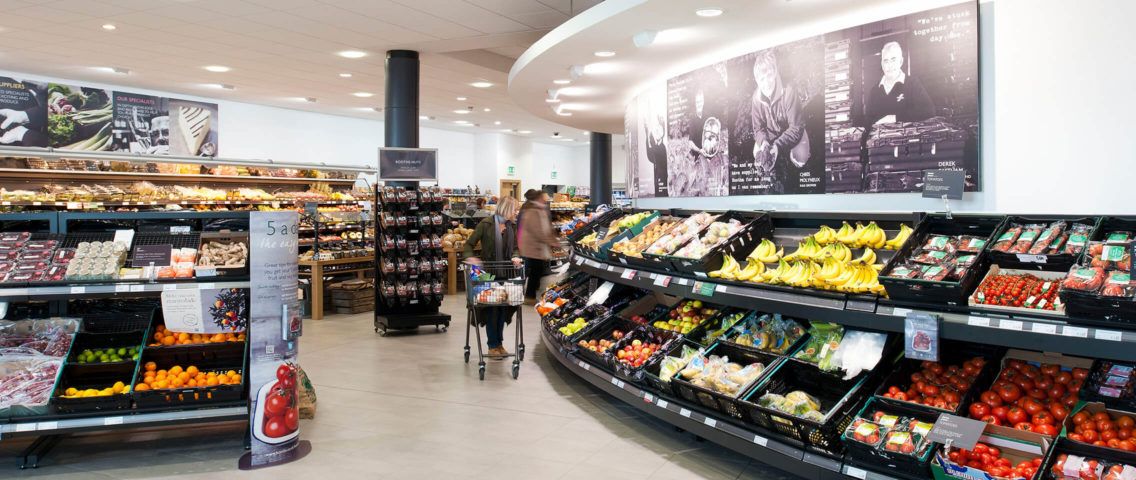Introduction
Booths is Britain’s leading regional supermarket, well-known across England’s North West. It’s a medium-sized company operating in a sector dominated by large chains.
Booths’ main competitors include Britain’s four biggest retailers which turn over up to 200 times more than Booths. A family-owned business, Booths has sought to establish points of differentiation so that it stands out in the market. Its strategy has been to turn itself into a ‘destination retailer’, one differentiated by ambience and assortment; such as deli goods, regional specialities and seasonal items. Its reputation for quality and good service has made it a well-loved brand across its region.
Challenges
- Remarkably wide product selection
- Longer lead times due to weaker negotiation power
- Promotion handling
- Improvement of demand forecasting
- New product introductions planning
Booths carries a wide selection of products comparable to many of its larger competitors. It keeps a significant number of slow moving lines in the assortment because they underpin Booths’ positioning as a ‘destination’ retailer. Freshness and quality are of paramount importance to Booths’ offering. Yet Booths enjoys less negotiating power than its huge rivals and therefore can’t insist suppliers provide daily deliveries for all items. Booths also prioritised reducing spoilage of perishables because the potential for cost reduction was considerable.
The company wanted to improve its handling of promotions as well. Where fresh and chilled items were concerned there was inevitably the additional risk of spoilage issues.
Improved demand forecasting would also allow Booths to take better account of weather, improve planning for new product introductions, ensure optimal allocations from DC to stores and to move staff towards more value-adding managerial tasks.
Partnership
Booths chose RELEX because of three things: expertise, attitude and flexibility.
The RELEX solution was integrated with Booths’ existing in-house system. It was adapted to the supermarket’s way of operating and to support their process-development vision. Central to that vision is ensuring that goods reach customers as fresh as possible and with less wastage. RELEX also offered a strongly results-dependent partnership that minimised Booths’ risks and made it easy to proceed.
We’ve seldom found IT providers willing to put their money where their mouth is. This was a refreshing change and shows the confidence they have in their solution.
Andrew Rafferty, IT and eCommerce Director, Booths
“We’ve seldom found IT providers willing to put their money where their mouth is. This was a refreshing change and shows the confidence they have in their solution,” says Booths’ IT and eCommerce Director Andrew Rafferty.
Project Implementation
After a specification and construction phase the implementation began at Booths in February 2014. The roll-out took place just 4 months later covering all 29 stores and 13,000+ SKUs.
Booths chose to start with its toughest challenge; reducing spoilage of its chilled cabinet lines, the single biggest contributor to overall spoilage. This meant tackling issues around short shelf-life, varying lead times and order schedule, and highly volatile demand. “We wanted to know quickly whether the project was worth continuing,” Rafferty says.
The Results
The results are exciting. Overall spoilage fell around 10% while that of chilled products fell over 20%, significant because that category accounts for around 20% of total wastage. Shelf availability increased simultaneously.
“Improving availability and cutting spoilage doesn’t have to be an either/or,” Rafferty says. “We managed to cut spoilage with no adverse impact on availability at all.”
“Presentation is important so we need full shelves and good displays, even for slower moving products that are included as part of our ‘destination retailer’ offering. With RELEX we can factor in display requirements while not losing sight of shrinkage.”
“The biggest fresh produce challenge,” Rafferty says, “was the very early ordering deadlines with cut-offs as early as 5:30 AM for 24 hour delivery. With those suppliers we are practically in a totally automated ordering model.” Booths has even been able to expand its ‘picked-today’ offering.
“I won’t pretend there weren’t challenges,” says Rafferty. “For a start neither RELEX nor Booths entirely anticipated the complexity of the issues we faced. Where volumes are small, forecasting becomes that much more complicated.”
“But the real revelation was how completely invested RELEX was in helping us to find a way forward whenever we encountered an obstacle. They took joint ownership of our challenges and were always ready to go the extra mile. So together we made this work and work well.”
